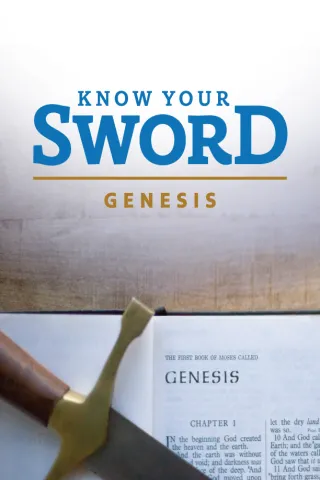Genesis Part 016

After the flood, God promises He would never again destroy every living thing on the earth, even though he knows that from a young age, our hearts, minds and actions think and do evil things.
The flood began in the second month, on the 17th day when Noah was 600 years old (Genesis 7:11). Verse four states that on the seventh month on the 17th day, the ark rested somewhere in the mountain chain of Ararat. This Hebrew word means “the curse reversed.” The word for “Ararat” is also found in 2 Kings 19:37 and Isaiah 37:38 as Armenia. It is widely accepted as the geographical meaning of this word. This is a very large mountain chain covering eastern Turkey and Western Iran. Many have attempted to find the remains of the Ark, nevertheless no clear discovery has been made. Finding this discovery is not imperative to our faith of course, but would be interesting.
In Genesis 8:14 we read that it’s not until the 27th day of the second month that the earth was dry and Noah and his family and the animals left the ark. This is one year and 10 days after the flood began.

What is the first recorded action of Noah after leaving the ark? In Genesis 8:20 Noah builds an altar and makes sacrifices of the clean animals and birds to God. Once again, we see that Noah understands God’s animal laws regarding which animals were clean and unclean, and which were to be sacrificed. We saw this with Cain and Abel previously as well. This understanding and practice of obedience came long before Moses and the people of Israel and Mount Sinai. Verse 20 is also the first time we find the word “altar” used. It’s used 401 times in the Old Testament, but this is the first one mentioned and it’s built by Noah. It is likely that Cain and Abel’s sacrifices were also offered on altars, but this is the first official mention of such a practice.
Noah's offering was well received by God, “And the Lord smelled a soothing aroma” (Genesis 8:21). This Hebrew word “soothing” means “restful, soothing, quieting.” In the King James Version of the Bible it’s always translated “sweet,” but based on the meaning of the word it could also be interpreted that it brings about a “peaceful, soothing” effect.
Notice what God says immediately following,
“Then the Lord said in His heart, “I will never again curse the ground for man’s sake, although the imagination of man’s heart is evil from his youth; nor will I again destroy every living thing as I have done” (Genesis 8:21).
He would never again destroy every living thing on the earth, even though he knows that from a very young age, our hearts, minds and actions think and do evil things. We have a promise from God that food will grow, seasons will continue, and there will be day and night for as long as the earth remains (Genesis 8:22). This promise, and the knowledge that God is always in absolute and complete control should bring us a level of peace, even while we live in a rapidly declining and unstable world. Our Great God is on His throne and in control!
Tomorrow we will look into Genesis 9.
UYA Team | uya@ucg.org
United Young Adults (UYA) primarily serves the 18–32-year age group for the United Church of God. There are three main areas of contribution to the lives of the young adults: Promoting Spiritual Growth, Developing Meaningful Relationships and Making the Most of Your Talents. The Know Your Sword series is a daily expository message introducing God’s Word from a trusted perspective.



